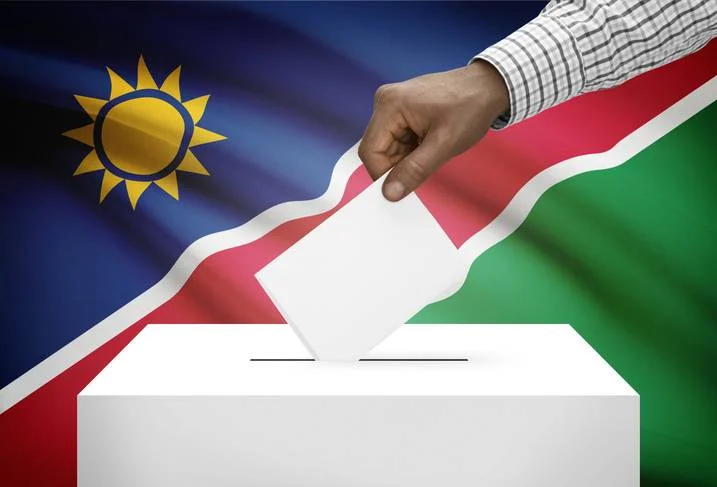
WINDHOEK, Nov 27, 2024 (BSS/AFP) - Namibia's vice president was among the
first voters in elections Wednesday that could see her become the desert
nation's first woman leader, even as her ruling SWAPO party faces a strong
challenge to its 34-year grip on power.
Netumbo Nandi-Ndaitwah, a 72-year-old veteran of the South West Africa
People's Organisation, cast her ballot in the capital Windhoek as polls
opened at 7:00 am (0500 GMT).
She urged the country's roughly 1.5 million registered voters to do the same
before polls close at 9:00 pm.
The vote "will have an impact for the next five years in your life and in the
life of every Namibian and any person who's visiting this country," said the
candidate popularly known as NNN.
SWAPO has governed the mineral-rich country since independence in 1990 but,
amid complaints about high unemployment and enduring inequalities, Nandi-
Ndaitwah could be forced into a second-round run-off if she fails to garner
at least half the vote.
Waiting in the early morning sun to cast her ballot, Frieda Fillipus, 31,
said she wanted to see a woman run the country.
"The future is female," said Fillipus, who works in the key mining sector.
"The outcome will be tight," said self-employed Hendry Amupanda, 32, who had
been queuing since 9:00 pm the night before.
"I want the country to get better and people to get jobs," said Amupanda,
wearing slippers and equipped with a chair, blanket and snacks.
Nandi-Ndaitwah has four main challengers including Panduleni Itula, 67, a
former dentist and lawyer who founded the Independent Patriots for Change
party in 2020.
Itula took 29 percent of votes in the 2019 elections, losing to SWAPO leader
Hage Geingob, who garnered 56 percent of votes.
Despite the loss, his performance was remarkable considering Geingob, who
died in February, took almost 87 percent five years earlier.
For the first time in the southern African nation's recent history, a second
round is "a somewhat realistic option", said Henning Melber, of the Nordic
Africa Institute at the University of Uppsala.
A run-off would take place within 60 days of the announcement of the results
of the first round due on Saturday, according to the election calendar.
Namibia is a major uranium and diamond exporter but not all of its nearly
three million people have benefitted from that wealth.
"There's a lot of mining activity that goes on in the country, but it doesn't
really translate into improved infrastructure, job opportunities," said
independent political analyst Marisa Lourenco, based in Johannesburg.
"That's where a lot of the frustration is coming from, (especially) the
youth," she added.
Unemployment among 15- to 34-year-olds is estimated at 46 percent, according
to the latest figures from 2018. This is almost triple the national average.
- 'Immediate needs' -
Though the party's founders led the country to independence from white-ruled
South Africa in 1990, its current leaders are nervous about suffering the
same fate as other liberation-era movements in the region.
In the past six months, South Africa's African National Congress lost its
parliamentary majority and the Botswana Democratic Party was ousted after
almost six decades in power.
In Mozambique, though the ruling Frelimo won recent elections, civil society
and opposition groups have protested for weeks claiming fraud and demanding
change.
"Young people have been feeling the brunt of the current economic downturn in
a lot of African countries," said Nic Cheeseman, a professor specialised in
African politics at the University of Birmingham.
"It's not just that they're young and it's not just that they don't remember,
it's also that they really feel the pinch of the economic crisis."
"The challenges affecting Namibia, similar to the challenges affecting other
African countries, are shifting the political landscape drastically," said
Tendai Mbanje, an election expert at the Johannesburg-based African Centre
for Governance.
"Elections are (now) about the immediate needs of the citizens, and
particularly young people."